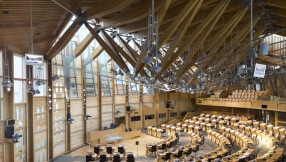
The Charity Commission has warned the Archbishops’ Council in the Church of England that it must “rapidly accelerate the delivery of safeguarding improvements”.
The Archbishops' Council has been told that "bigger, bolder steps" need to be taken and that these should be "informed by the experience of victims and survivors".
According to the Regulatory Action Plan issued by the Commission, the Archbishops' Council must also "close gaps in its approach to handling complaints".
It has given the Council 18 months to implement the independent safeguarding structures approved in February by the General Synod, the Church of England's parliamentary body. In the meantime, it must ensure that "robust interim measures" are in place "to keep people safe".
The Archbishops' Council is one of seven national Church of England institutions and exists to "co-ordinate, promote, aid and further the work and mission of the Church of England".
The Charity Commission began engaging with the Archbishops' Council towards the end of last year after serious concerns about safeguarding in the Church of England were raised in successive reviews, notably those led by Sarah Wilkinson, Professor Alexis Jay, and most recently Keith Makin, whose review into violent abuser John Smyth triggered the resignation of the then Archbishop of Canterbury, Justin Welby.
"Public debate about the Church’s approach to safeguarding following publication of the Makin Review – and the Archbishop of Canterbury’s resignation over the issue – exacerbated regulatory concerns that progress towards safeguarding improvements identified in the various independent reports was not happening with sufficient pace," the Charity Commission said.
It said it had not found any evidence of mismanagement or misconduct by the trustees of the Archbishops’ Council, and that it recognised some progress has been made in improving safeguarding. However, it believes that the Council has not moved quickly enough and that at present "there is insufficient urgency and pace" in implementing the recommendations made in past safeguarding reviews.
It finds that the current approach is "fragmented and overly complex", and that the current 2028 timeline to pass legislation on the implementation of independent safeguarding plans is "too slow, representing a four year gap since the publication of the Jay Review".
The case review finds further shortcomings in the way that claims of abuse made by adults not deemed "vulnerable" are currently not treated as a safeguarding allegation.
"The Commission’s guidance is clear that trustees must take reasonable steps to protect from harm all people who come into contact with their charity," the Charity Commission said.
Trustees of the Archbishops’ Council must also plan for future engagement with victims and survivors "in a meaningful, sensitive and structured way so that it supports the timely delivery of change needed to keep people safe in the future".
Charity Commission Chief Executive, David Holdsworth, said: "It’s time for the Archbishops’ Council and the Church of England to move from review to reform, and from debate to delivery.
"Everyone recognises that improving safeguarding is an ongoing journey, but in the Archbishops’ Council’s case the progress on that journey must be made in bigger, bolder steps, informed by the experience of victims and survivors.
"The Commission will monitor the charity’s progress against our Regulatory Action Plan, and reserve all regulatory options for the future if sufficient progress is not made at pace."
In its response to the Charity Commission's case review, the Archbishops’ Council said it "provides valuable clarity to support ongoing improvements in our work". It said that it remained "committed to acting on these recommendations as swiftly as possible".
"Our priority in all our work remains to respond well to victims and survivors. This commitment is vitally important to us all and continues to shape every aspect of our safeguarding work," the Council said.
“As part of our commitment to continually improve the quality of safeguarding we are immediately focused on building on the work undertaken over the past decade, which has included the introduction of independent safeguarding audits, comprehensive safeguarding training for all who work in the Church whether paid or voluntary, and ensuring Church bodies have safe and healthy cultures, as well as resourcing and scrutiny arrangements necessary to deliver high-quality safeguarding practices and outcomes.
"The Archbishops’ Council is committed to working at pace to enable the implementation of further safeguarding reforms, particularly in governance, with detailed proposals to be brought to the next General Synod to ensure sustainable and long-lasting best practice."













